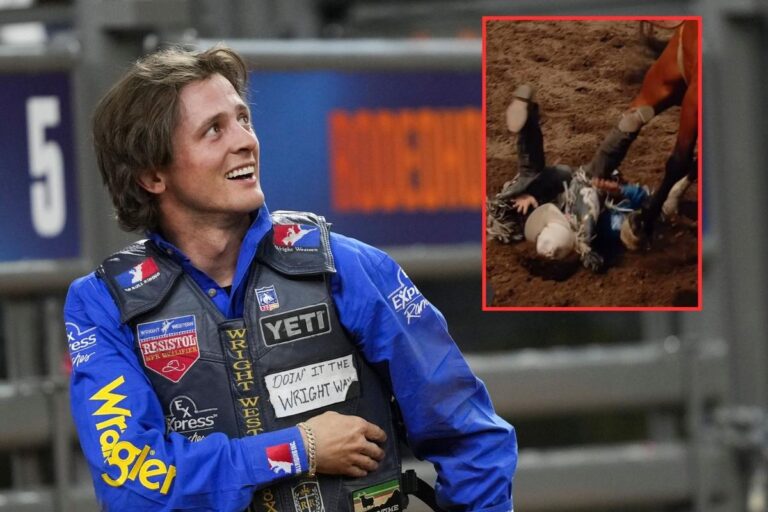During its first 14 years and seven studio albums, Supertramp was blessed with two very different and distinctive songwriters (and lead singers).
Roger Hodgson was, generally speaking, the hippie seeker, high-minded and hopeful. Rick Davies — who passed away Saturday at the age of 81 — was his counterpoint, earthier, grounded and, OK, occasionally grumpier, but in a way that worked in tandem and alongside his former bandmate.
The British-born Davies, who was living in East Hampton. N.Y., at the time of his death, was as passionate about R&B, blues and jazz as he was rock and op. He started on drums before moving to keyboards and had a college band that included a fledgling Gilbert O’Sullivan in its ranks.
He and Hodgson met via an ad Davies placed in in Melody Maker, retooled the band after its first two albums and led it through a “classic” period that lasted from 1974’s Crime of the Century through …Famous Last Words… in 1982, and including the quadruple platinum Breakfast In America in 1979.
Davies continued to guide Supertramp after Hodgson’s departure in 1983 — “As Rick and Roger were growing older there was a bit more of a rift between their outlooks,” saxophonist John Helliwell told UCR earlier this year — recording another four albums and sporadic touring through 2012.
A planned 2015 tour was scuttled due to Davies’ health problems, though he performed with his own band, Ricky and the Rockets, as recently as October of 2024 on Long Island.
His passing, like so many before, provides an opportunity pause and appreciate the work Davies did — including these 10 Supertramp tracks we’d deem his best…
10. “It’s A Hard World”
From: Some Things Never Change (1996)
Much of Supertramp’s post-Hodgson output has been eclipsed by what came before, but this opening track from the group’s 10 studio album merits rediscovery. At nearly 10 minutes it’s something of an epic, opening with bass and piano exchange before winding into an understated groove and steadily expanding arrangement that carried the song through Davies’ sentiments of defiant resolve. Thirteen years after the split with Hodgson, we have to imagine Davies is re-planting his flag as he sing, “Rejections, I’ve had a few/Happens to the best, it ain’t nothin’ new/Still I keep on swingin’ away/S’gonna be a breakthrough any day.”
9. “My Kind of Lady”
From: …Famous Last Words… (1982)
In a way unlike anything Davies had written and recorded for Supertramp up to that point — an unconflicted love song in which he declares “You know I’ll love you all the way/When times get hard, we’ll smile and sing” in a classic doo-wop arrangement that also shows off his falsetto. The song’s video also marked the “debut” of the quartet Supertramp would become, as the departing Hodgson is missing from the session.
Read More: Top 10 Supertramp Songs
8. “Another Man’s Woman”
From: Crisis? What Crisis? (1975)
Davies’ take on a Louisiana blues-style cheatin’ song — more polished and sophisticated, of course, but still filled with the angst of someone who’s doing something wrong, knows he’s doing something wrong and that there will be hell to pay but it doing it anyway, and with sly grin and wink to go with it. The track rocks, and note the chorus reference to “your cannonball comin'” a decade before “Cannonball” actually came along.
7. “Cannonball”
From: Brother Where You Bound (1985)
What Supertramp was going to sound like was answered by this lead single from the group’s first album without Hodgson. Though it has a decidedly 80s sonic flavor it cooks along a jazzy blues groove that lets Davies stretch out on keyboards and gives Helliwell plenty of room for exposition — including a quote from Count Basie’s “Topsy” during the outro of the (highly recommended) album version. Many though he was singing about Hodgson with sentiments such as “I’m washing my hands on you/how could you be so untrue?,” but Davies subsequently maintained that his target was actually a concert promoter who did him wrong. If he says so…
6. “Just Another Nervous Wreck”
From: Breakfast in America (1979)
Eclipsed by Breakfast In America‘s big hits, this is another melodic gem that kicks off with Supertramp’s trademark piano tone (a kissing cousin to “Goodbye Stranger,” in fact) and Davies exhorting his listeners to “give a damn” and “fight, while you can” as the track builds to a gospel-flavored fervor. A nice reward to those who listened the album all the way through.
5. “Ain’t Nobody But Me”
From: Crisis? What Crisis? (1975)
Davies seemed to be in a bit of a state — a Crisis, if you will — this time out, and like “Another Man’s Woman” this deals with deception and a degree of despair even as he promises to “lie for you” and “die for you.” He plays the Jekyll and Hyde he references in the lyric convincingly, and the song has the theatrical quality of a second-act lover’s lament.
4. “Crime of the Century”
From: Crime of the Century (1974)
Davies doesn’t need a lot of words to make his point on the closing and title track of Supertramp’s breakthrough album; “Who are these men of lust, greed and glory?/Rip off the masks and let’s see” he sings on a track that has eerie applications to the present day. It’s suitably dramatic as well, a foreboding, Broadway-esque mode whose long instrumental outro fits with the best of 70s British prog.
3. “Goodbye Stranger”
From: Breakfast in America (1979)
Davies’ highest-charting single (No. 15 on the Billboard Hot 100) is playful, deceptively light as his protagonist slips out the door (back or front is not specified) after what we presume is a romantic dalliance. “I must be moving on,” he declares, and the song does move, through a falsetto-flaunting chorus and an ebb and flow arrangement that resolves into a hot guitar solo from Hodgson and some ferocious bass work by Dougie Thomson.
2. “From Now On”
From: Even In the Quietest Moments (1977)
There’s a certain luxuriousness in the way Davies lets this track unspool over nearly six and a half minutes, a languid journey whose understated dynamic is bolstered by plenty of sonic space and one of Davies’ finest vocal performances and a palpable sense of longing that leads to as resigned a call-and-response exercise as you’ll ever here. All that, and a nice sax break from Helliwell fit for the smokiest of jazz clubs.
1. Bloody Well Right”
From: Crime of the Century (1974)
The flip side of the “Dreamer” single became a rock radio favorite with Davies’ extended, jazz-flavored piano intro that leads into Hodgson’s aching electric guitar licks and an arrangement that slides into both hard rock and music hall flavors, with what’s arguably Helliwell’s most memorable recorded sax solo. The lyrics are of a piece extend beyond the preceding track “School,” examining how the inequities of the British educational system described in that song impact its society at large — lofty stuff, but it doesn’t at all bog down a landmark song.
The Most Played Song Live by 40 Classic Rock Legends
These artists’ biggest hits and introductory songs followed them for decades.
Gallery Credit: Bryan Rolli



